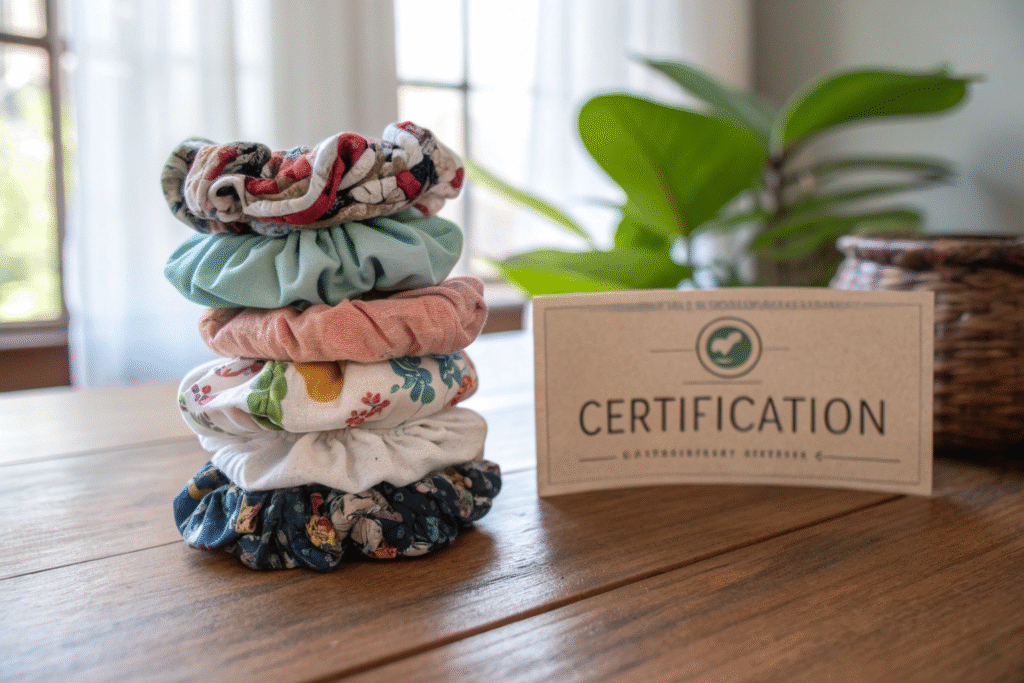The latest eco-certifications for recycled scrunchies focus on verifying recycled content, ensuring safe chemical use, protecting workers’ rights, and promoting transparent supply chains. These standards not only build trust with customers but also open doors to premium retail markets worldwide.
If you are a wholesaler, brand owner, or e-commerce seller sourcing recycled scrunchies, understanding these certifications can help you make better buying decisions and market your products more effectively.
Global Recycled Standard (GRS)
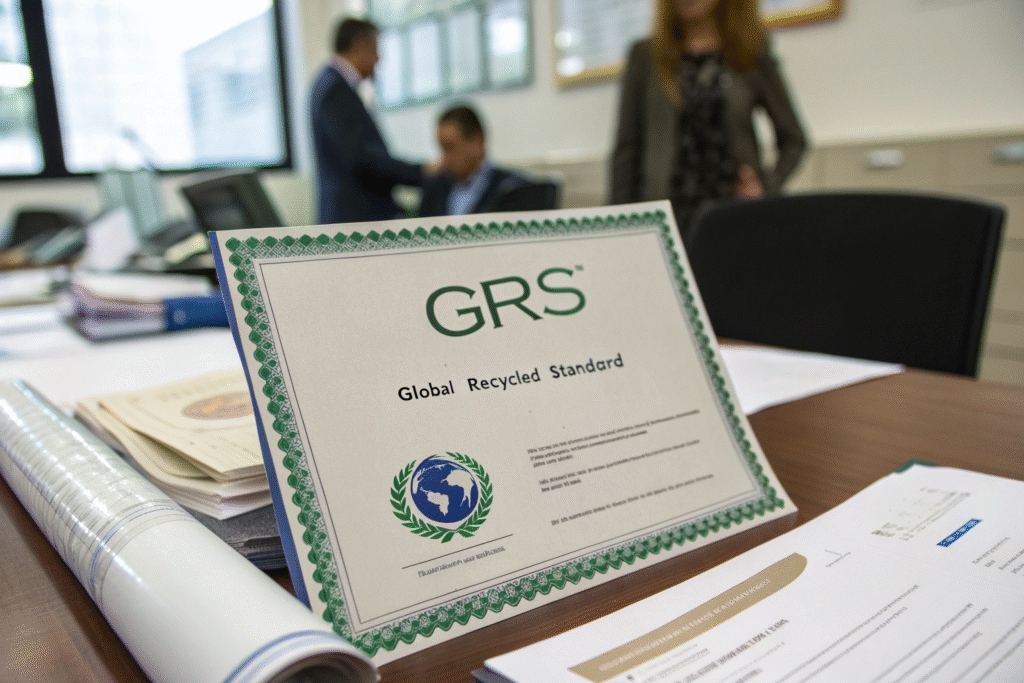
The GRS covers:
- Recycled content verification through third-party audits.
- Restricted substance list (RSL) compliance for safe chemical use.
- Social responsibility requirements for worker welfare.
- Full chain-of-custody tracking from raw material to finished product.
How does GRS benefit scrunchie buyers?
By sourcing GRS-certified fabrics for your scrunchies, you can guarantee transparency and sustainability, giving your products an edge in competitive markets. Many major retailers require GRS certification for recycled textiles before approving suppliers.
Why should factories adopt GRS?
Factories holding GRS certification can access high-value export markets, win long-term contracts, and avoid compliance issues. Detailed guidelines are available from the Textile Exchange.
Recycled Claim Standard (RCS)
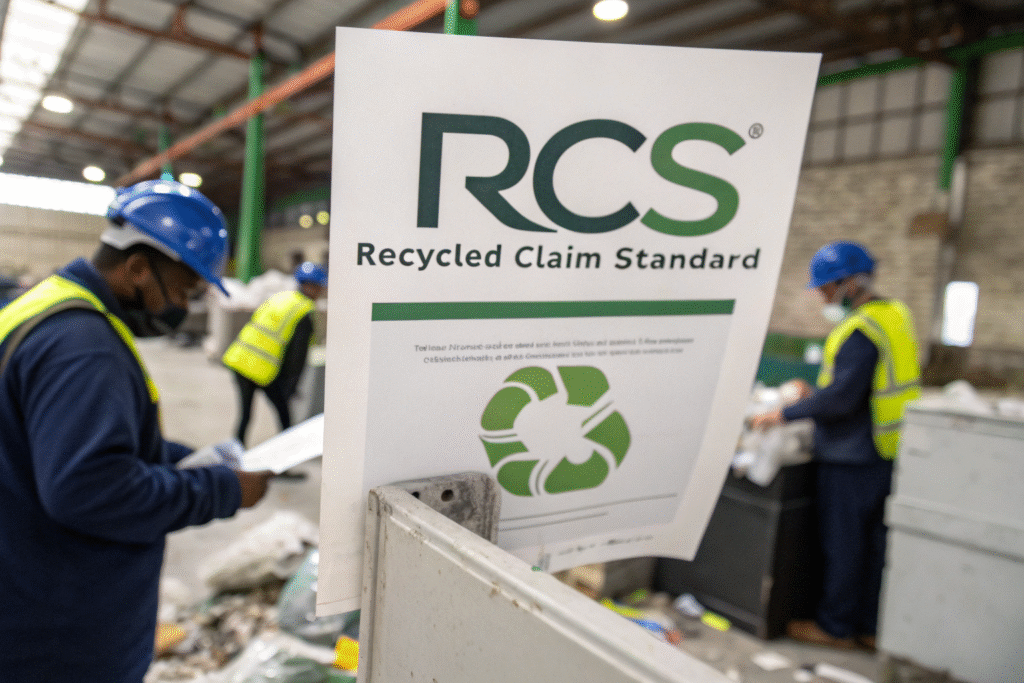
RCS focuses mainly on:
- Material verification through transaction certificates.
- Transparency in sourcing for marketing claims.
- Basic supply chain audits for credibility.
When to choose RCS over GRS?
If you are targeting budget-conscious buyers or fast-moving fashion markets, RCS-certified products can offer a cost-effective eco-claim without the full compliance costs of GRS.
Limitations of RCS
Unlike GRS, it does not cover chemical restrictions or social criteria, so it’s best for brands that already manage those aspects internally.
Materials Matter Standard (Effective 2026)
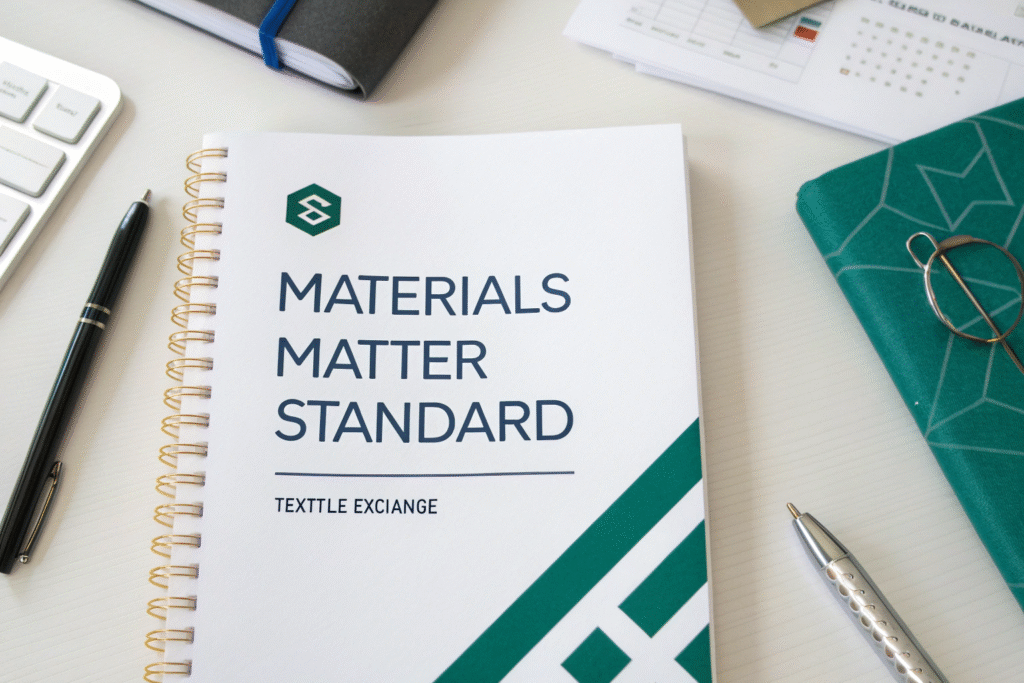
Key features:
- Unified compliance framework for recycled, organic, and preferred materials.
- Climate and biodiversity strategies as part of certification.
- Mandatory adoption for many retailers by 2027.
Why does this matter for scrunchie brands?
Brands that prepare early for Materials Matter certification will transition smoothly, avoid last-minute compliance costs, and position themselves as leaders in sustainable accessories.
How to prepare now
Work with suppliers already aligned with Textile Exchange’s guidelines and request updated audit plans for 2026.
OEKO-TEX & Other Safety-Focused Standards
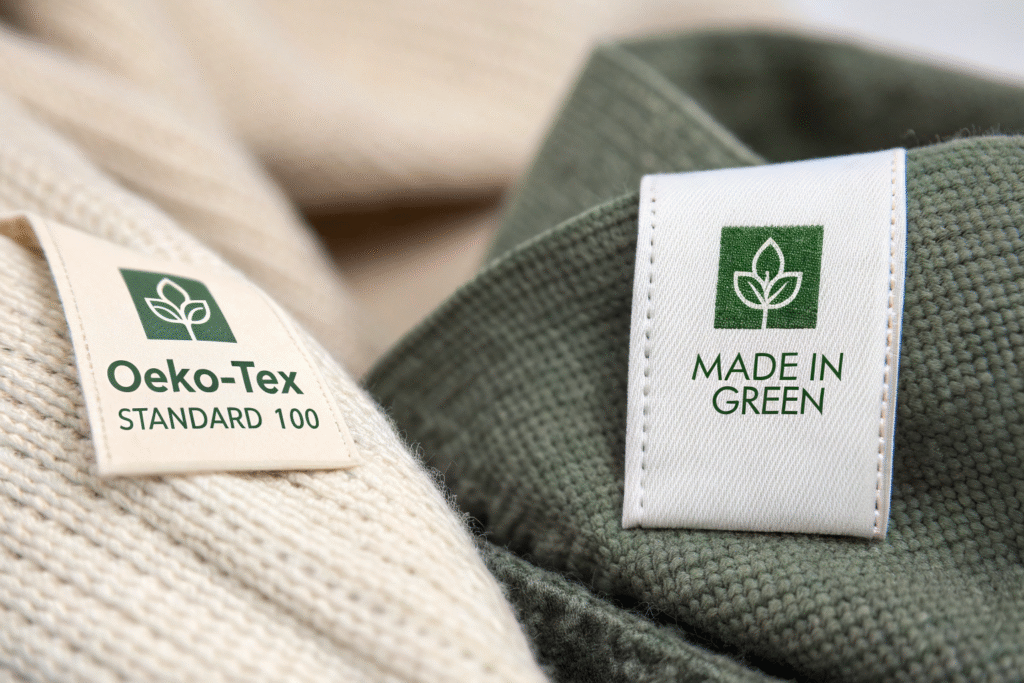
OEKO-TEX Standard 100:
- Tests for harmful substances in every component of a product.
- Ensures products are safe for direct skin contact.
MADE IN GREEN:
- Combines product safety with environmentally friendly and socially responsible manufacturing.
Other complementary certifications
- GOTS (Global Organic Textile Standard) – Best for scrunchies made from organic fabrics combined with recycled materials.
- Cradle to Cradle Certified™ – Recognizes products designed for circularity and full recyclability.
For more details, visit OEKO-TEX official site or explore Cradle to Cradle guidelines.
Conclusion
Eco-certifications for recycled scrunchies are evolving fast. Right now, GRS offers the most comprehensive validation, RCS is an accessible entry-level option, and Materials Matter is set to become the unified future standard. Adding OEKO-TEX, GOTS, or Cradle to Cradle can strengthen your product’s eco profile and expand market reach.
If you want to produce certified recycled scrunchies with a trusted Chinese manufacturer, our team at Shanghai Fumao is ready to help. We handle design, sampling, certification, bulk production, packaging, and global shipping. Contact our Business Director Elaine at elaine@fumaoclothing.com to start your order.

